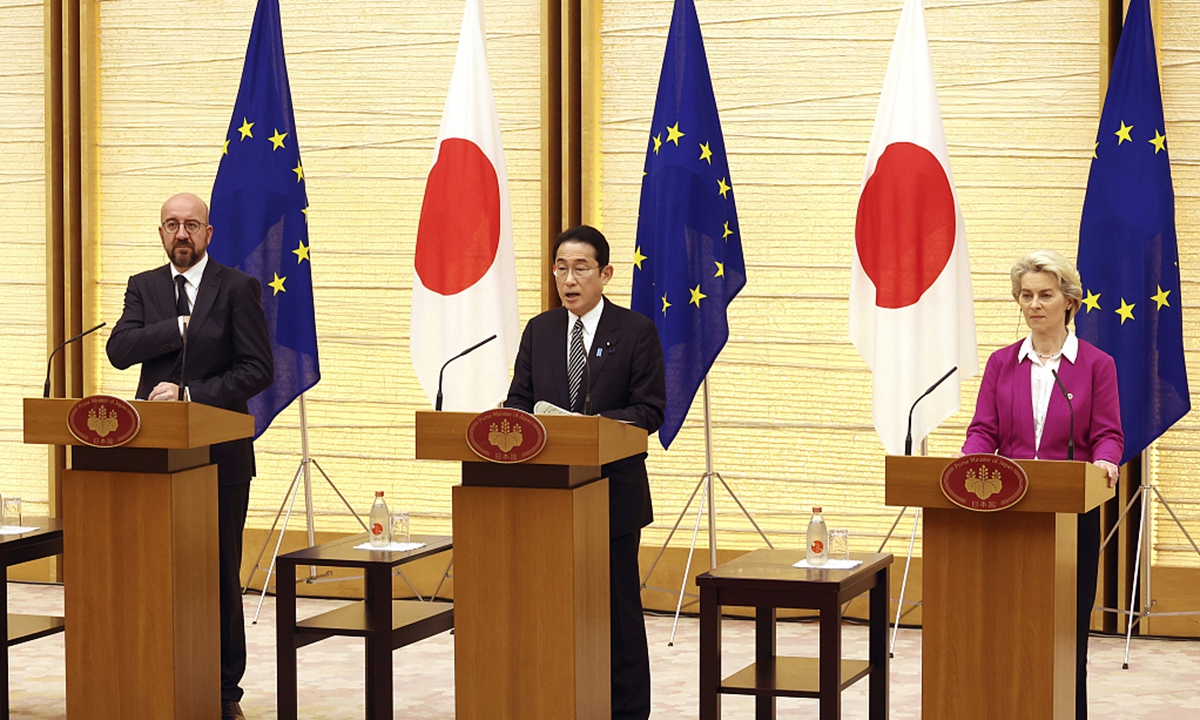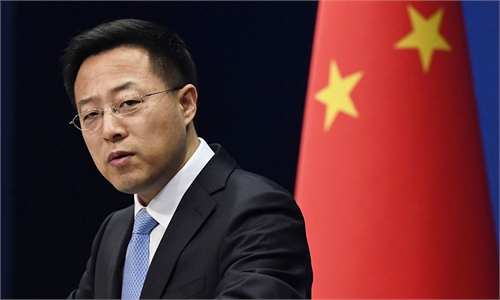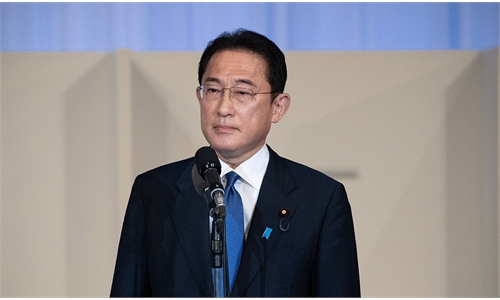Japan's joint statement with EU hyping 'China threat' detrimental to its own, regional security: experts

From right, European Commission President Ursula von der Leyen, Japanese Prime Minister Fumio Kishida and European Council President Charles Michel announce their joint statement at the prime minister's official residence in Tokyo on May 12, 2022. Photo: VCG
The Russia-Ukraine conflict and "rising threats of China" dominated the summit between Japanese Prime Minister Fumio Kishida and European Commission President Ursula von der Leyen, and European Council President Charles Michel in Tokyo on Thursday.
Hyping the so-called China threat and introducing external forces to the Asia-Pacific region for the security of Japan will only create confrontation in the region, threaten security of its East Asian neighbors and put Japan in its worst security environment since the WWII, experts warned.
The two parties said in a statement that they remained "seriously concerned about the situation" in the East China Sea and the South China Sea, and underscored the importance of peace and stability across the Taiwan Straits and encouraged a peaceful resolution.
The two parties said they will deepen exchanges on China, including "situations" in China's Hong Kong and Xinjiang.
Japan has continued its strategic deployment of China for some time and continued to hype the targets of attack it has been making against China, including affairs regarding the Taiwan Straits, the South China Sea, Hong Kong and Xinjiang, which is not surprising, Li Kaisheng, deputy director at the Institute of International Relations of the Shanghai Academy of Social Sciences, told the Global Times on Thursday.
Two days earlier, Chinese Foreign Ministry spokesperson Zhao Lijian warned that the EU and Japan should not interfere in China's internal affairs during the summit, noting that China believes cooperation between the two parties ought to be conducive to promoting regional stability and development.
"The EU-Japan summit is between the two sides. China should not be made an issue, still less should China's internal affairs be interfered in," Zhao stressed.
All parties should be committed to pursuing openness instead of isolation, and seek integration rather than decoupling to jointly strive for steady recovery of the world economy, Zhao said.
Unfortunately, China's cooperative attitude has not been reciprocated by Japan and its Western partners. At the summit, both sides continued to speculate about China's threats as well as interfere in its internal affairs, which is a misinterpretation of China and an over-consumption of the Ukraine crisis, Li said.
Japan joined some Western powers in simplifying complex geopolitics into a so-called clash of ideologies and values, and has again used this framework toward China and spread negative rhetoric about it, Li noted.
As Japan's recent moves are increasingly leaning to the NATO-led West, actively joining the sanctions against Russia, echoing the US-led Indo-Pacific strategy, and possibly even participating in NATO summits, experts said, noting that these practices will constitute a serious threat not only to the security of its East Asian neighbors, but will also put Japan in its worst security environment since WWII.
"The security of the Asia-Pacific region needs to be maintained by all countries in the region," Li said. "If Japan attempts to bring in the US or EU, it will only create confrontation in the region, or even a Cold War-like pattern, which would be detrimental to the region and countries within it," he said.
To counter the negative tendency, countries in the Asia-Pacific region should unite to establish a new regional security concept that is safe and sustainable, and solve problems through negotiations rather than confrontation, observers noted.


